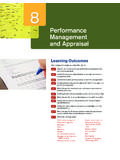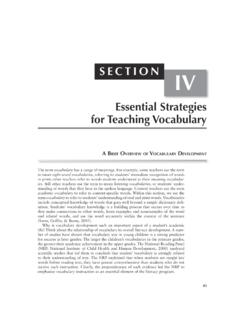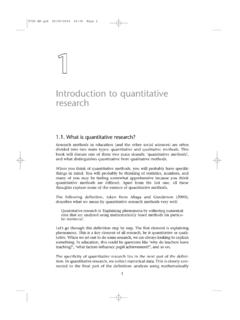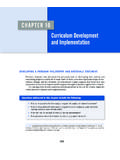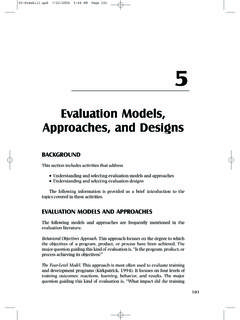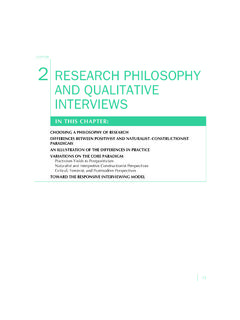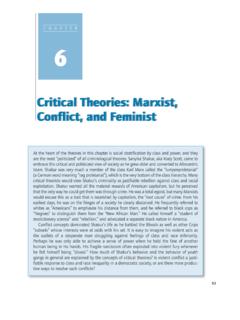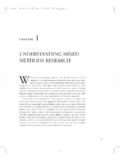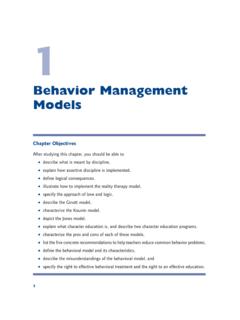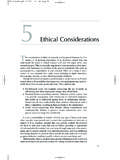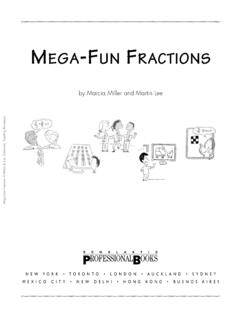Transcription of Conducting Teacher Action Research - SAGE Publications Inc
1 23411 Conducting Teacher ActionResearchThis chapter describes a process for Conducting a Teacher actionresearch study. The suggestions offered here have emanated frommy reading in the Action Research literature and my personal experi-ences and engagement in a variety of collaborative Teacher actionresearch studies during the past 40 years. My pedagogical voice per-meates the chapter, but I hope it does so in a way that establishes mean-ingful contact with you the reader. I have tried to capture in thischapter the realities, complexities, and challenges of conductingteacher Action Research . In several places in the chapter, I emphasize theimportance of the critical process that recursion represents in the con-duct of Action Research , particularly as recursion affects Research ques-tions and the processes of data collection and analysis.
2 I hope thischapter will be a meaningful resource and foundation for you as youconduct your own Research and that it will give you all the rudimentsof practice you need to become a lifelong researcher. MODEST BEGINNINGSA ction Research is demanding, complex, and challenging because theresearcher not only assumes responsibilities for doing the Research but Conducting Teacher Action Research235also for enacting change. Enacting change is not easy it requires time,patience, and sound planning, communication, and implementationskills. So, in establishing a foundation for Conducting Action Research ,I believe that modest beginnings are no disgrace and are in mostrespects preferable to more ambitious ones.
3 The visibility and impactof early efforts may be small, but it is advisable to consider carefullythe relative merits of simple versus more intricate Research plans anddata analysis procedures. It is likely that by adopting the strategies ofa methodological miser, there is more to be gained than lost. In the con-duct of Action Research , just as in the interpretation of its results, thelaw of parsimony is recommended. Modest beginnings can serve tobuild step-by-step an Action Research tradition of dealing with realproblems that already have a natural and interested selecting and pursuing questions that focus on the immediateand imperative problems of the classroom and the school, teacheraction Research can attract the greatest attention at the most opportunetime (when there is something substantial to report), for the best reason(because some progress has been made, either in terms of increasedunderstanding or approaches to dealing with a problem), and probablyfor the appropriate audience (those who have a preexisting interest andinvestment in the problem and its solution).
4 A mounting record of vis-ible accomplishment is an excellent way to dispel the initial anxietyteachers may experience in undertaking Action Research . FINDING CRITICAL FRIENDSAs a member of a collaborative Action Research team, whether pursu-ing an individual Research study or a team study, it is important toengage colleagues in a process of collaborative inquiry to advance thedeveloping Research effort. Particular colleagues may be enlisted atthe beginning of the Research for a variety of reasons because they areespecially sensitive to emerging problems, or are creative and haveideas about how educational issues might be addressed, or are skilledin problem definition, or are greatly interested in a particular the reason, it is extremely helpful to have a circle of crit-ical friends who will work with you to help define the Research prob-lem, formulate the questions, collect and analyze the data, and discussthe data and outcomes of the study (Bambino, 2002; Cushman, 1998).
5 To facilitate critical collegiality, it is helpful to consider the normsdeveloped by the Bay Area Coalition of Essential Schools, which areparaphrased here: In collaborating with a group of critical friends, you and themembers of the group describe only what you see; you don t tryto describe what you don t see; you learn to express what youdon t see in the form of questions. Together, you resist the urge to work on solutions until you arecomfortable with what the data say and don t say. The perspectives and experiences of each member of the groupare brought to the analysis. Everyone seeks to understand differences of perception beforetrying to resolve them, recognizing that early consensus caninhibit depth and breadth of analysis.
6 In this critical process, members raise questions with each otherwhen they don t understand ideas or what the data are saying. Members surface assumptions and use data to challenge them,actively searching for both challenges and support for what theybelieve is kind of process exemplifies critical collegiality, which is essen-tial in dealing with the complexities and changing circumstances ofany Action Research is good to remember that Action Research can be messy. Cook(1998) and Mellor (2001), in writing about the importance of mess inaction Research , discuss the problems and overwhelming amount ofdata or possible areas that one can examine in doing Action describe their personal experiences in Conducting classroomaction Research projects and provide insights into some of the pitfalls,issues, and other concerns you might have before initiating your ownaction Research study.
7 Here again, the need for a circle of critical friendsto deal with the messiness of Action Research seems apparent. Criticalfriends share a commitment to inquiry, offer continuing supportthroughout the Research process, and nurture a community of intellec-tual and emotional caring. A FEW PRINCIPLES FOR Conducting Action RESEARCHA ction Research takes place in a context of discovery and invention asopposed to a context of verification. Discovery and invention, the mainbusiness of human science, have little to do with experimental one does to discover and invent a new way of teaching or a dif-ferent approach to assessment, for example, is a completely separateactivity from the strict procedures of classical experimental III.
8 PRACTICING Action RESEARCHSome basic principles for Conducting Action Research can be found inGregory Bateson s Rules of Thumb for doing Research : Study life in its natural setting, being careful not to destroy thehistorical and interactional integrity of the whole setting. Think aesthetically. Visualize, analogize, compare. Look forpatterns, configurations, figures in the rug. Live with your data. Be a detective. Mull, contemplate, observe,and inspect. Think about, through, and beyond. Don t be controlled by dogmatic formalisms about how to theo-rize and Research . Avoid the dualisms announced and pronouncedas maxims by particularizing methodologists and theorists. Be as precise as possible, but don t close off your explanations as close to your data and experienceas possible.
9 Aim for catalytic conceptualizations; warm ideas are conta-gious. (as cited in Bochner, 1981, pp. 76 77)Identifying the Research QuestionBy studying life in the natural setting of the school and the class-room, by looking for patterns in the rug, and by mulling, contem-plating, and closely observing authentic events in teaching andlearning situations, one can identify a Research question that willenlist personal passion and energy. A Teacher researcher, amongother things, is a questioner. Her questions propel her forward (Hansen, 1997, p. 1). Meaningful questions can emerge from: conver-sations with your colleagues; professional literature; examination ofyour journal entries and teaching portfolio to identify, for example,patterns of Teacher /student behavior or anomalies, paradoxes, andunusual situations; dissonance between your teaching intentionsand outcomes; problematic learning situations in your classroomthat you want to resolve; a new teaching strategy you are eager toimplement; an ambiguous and puzzling classroom managementconcern.
10 Or your curiosity about testing a particular theory in Meyers, a Teacher of writing, discusses how the process ofresearch in her classroom is clarified and informed by her field notes:Every year when I start Research by keeping field notes, I keepthinking that this is an exercise, and I m just writing down what sConducting Teacher Action Research237happening and I m not getting anything out of it. It seems like abland kind of thing. But when I keep doing that, all of a sudden I llhear the kids say something that shows they ve changed in someway, and I ll put that down too. And then things start to pulltogether. It s almost like the field notes that I keep and throughwhat I see happening out of those field notes the classroombecomes more alive.
